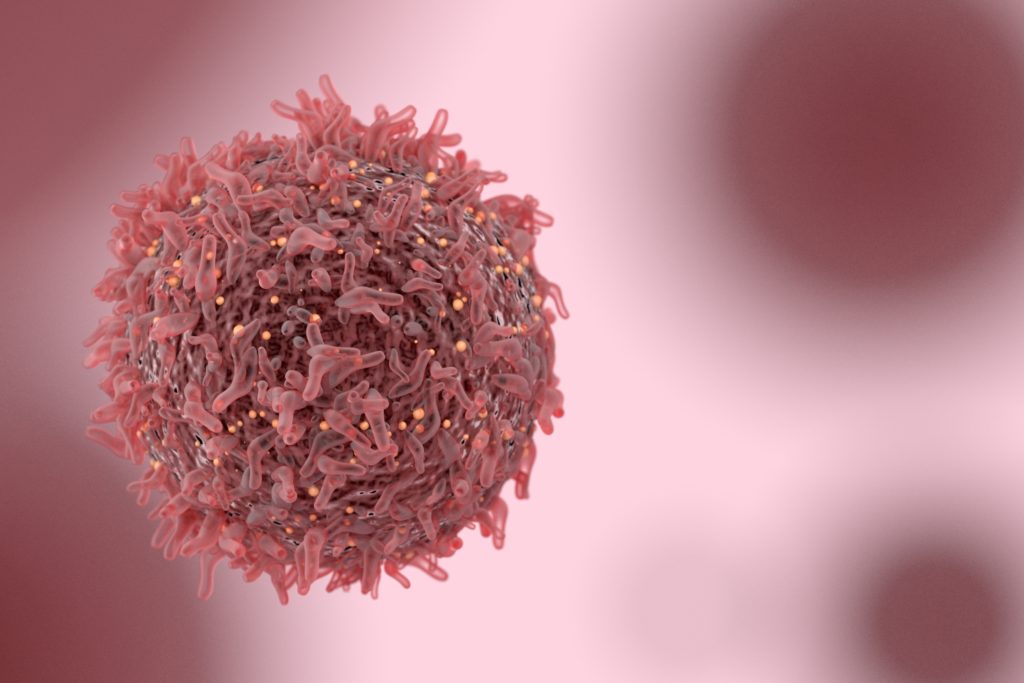What is HER2-Positive Breast Cancer?
HER2 positive breast cancer is a type of breast cancer that tests positive for a protein called human epidermal growth factor receptor 2 (HER2). This protein promotes the growth of cancer cells.
HER2-positive breast cancer tends to grow faster compared with HER2 negative ones. However, they often respond well to treatments specifically designed for HER2-positive cancers. These cancers can either be hormone-receptor (HR) positive or negative.
How Common is HER2-Positive Breast Cancer?
Around 15-20% of all types of breast cancers are HER2-positive. It is more common in younger, pre-menopausal women.
What are the Symptoms of HER2-Positive Breast Cancer?
Some patients diagnosed with HER2-positive breast cancer may not present with any symptoms. When symptoms are present, they may include:
- A new lump in the breast, armpit area or around the collarbone
- Thickening or hardening in the breast
- A change in breast size or shape
- Changes to the nipple, such as sores or crusting, an ulcer or inverted nipple
- Clear or bloody nipple discharge
- Changes to the skin including redness, puckering, or dimpling (an ‘orange peel’ appearance)
- Breast tenderness or pain
If the cancer has progressed to the metastatic stage, additional symptoms may be present depending on where the cancer has spread. Learn more about metastatic breast cancer here.
How is HER2-Positive Breast Cancer Diagnosed?
HER2-positive breast cancer is diagnosed in the same way as most other breast cancers, which typically involves a mammogram and a biopsy. The biopsy is important for determining the HER2 status of the cancer, which helps to guide the treatment plan for the treating doctors. Sometimes the HER2 test is performed on the cancer tissue once it has been surgically removed.
If the breast cancer has spread to other organs, additional tests may be needed to determine the extent and location of the spread.
How is HER2-Positive Breast Cancer Treated?
HER2-positive breast cancer is primarily treated with HER2-targeted therapies. The most common of these in Australia and New Zealand is trastuzumab (Herceptin). The HERA clinical trial found Trastuzumab significantly reduced the likelihood of early HER2-positive breast cancer returning.
Women with early HER2-positive breast cancer may also receive this in combination with surgery, chemotherapy, other HER2-targeted treatments and radiation therapy.
For women with metastatic HER2-positive breast cancer, trastuzumab may be combined with other treatments including other HER2-targeted therapies. This will continue so long as the benefit o the patient outweighs the side effects.
If the breast cancer is also Hormone Receptor-positive (HR-positive), it will grow as a result of the female hormones oestrogen and/or progesterone. Hormone blocking (or endocrine) treatments may also be prescribed in this situation.
What are my chances of Survival (prognosis) if I am Diagnosed with HER2-Positive Breast Cancer?
The prognosis for HER2-positive breast cancer prognosis has improved significantly thanks to targeted treatments like trastuzumab (Herceptin).
Factors such as age, stage of disease, and tumour type greatly impact your chance of survival. Those diagnosed with stage one breast cancer have a 96% chance of surviving five years after diagnosis, while those diagnosed with stage four HER-2 positive breast cancer have over 50% chance of surviving five years after diagnosis of metastatic disease.
Overall, the five-year survival rate for women diagnosed with breast cancer is 91.5%, and 86.4% for men.
What Clinical Trials are Available for HER2 Breast Cancer Patients?
Clinical trials have been vital in advancing the treatment of HER2-positive breast cancer.
To understand the experience of participating in a clinical trial, discover Laura’s story.
Supporting the latest breast cancer clinical trials today is the best way to change breast cancer outcomes – for you and your loved ones – tomorrow. Donate to improve treatment and save lives.
FAQ’s
Is HER2-Positive Breast Cancer Curable?
With the advancements in treatment, HER2-positive breast cancer is increasingly curable, especially when diagnosed early. The effective targeted therapies, like trastuzumab, have significantly improved the outcomes and life expectancy for HER-2 positive breast cancer.
What Does HER2-Positive Mean?
When a breast cancer is HER2-positive, it means that the cancer cells have an excess of the HER2 gene, leading to an overproduction of the HER2 protein. This overexpression helps the cancer cells grow and divide faster, but it also makes them more susceptible to targeted HER2 therapies.
Does HER2-Positive Breast Cancer Always Require Chemotherapy?
HER2-positive breast cancer treatment often includes chemotherapy, but it is not always required. The need for chemotherapy depends on factors such as size, grade and stage of the cancer. Targeted therapies can sometimes be used in combination with or instead of chemotherapy.
Is it Better to Have HER2-Positive or Negative Breast Cancer?
It is difficult to say whether it is better to have HER2-positive or HER2-negative breast cancer as both types have different treatment approaches and prognosis. However, HER2-positive breast cancer tends to respond well to targeted treatments, which have dramatically improved outcomes for this group.
Is HER2 Breast Cancer Aggresive?
HER2 breast cancer is typically more aggressive than other types of breast cancer due to its rapid growth rate. However, this type of cancer is also more responsive to specific targeted treatments, which can lead to better outcomes than some less aggressive, harder-to-treat cancers.
Support Us
Help us to change lives through breast cancer clinical trials research



